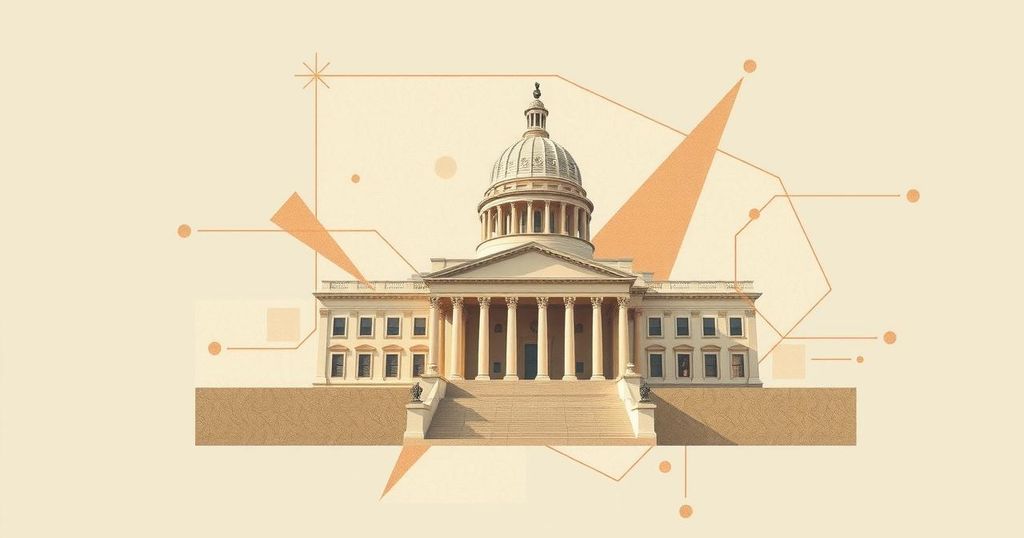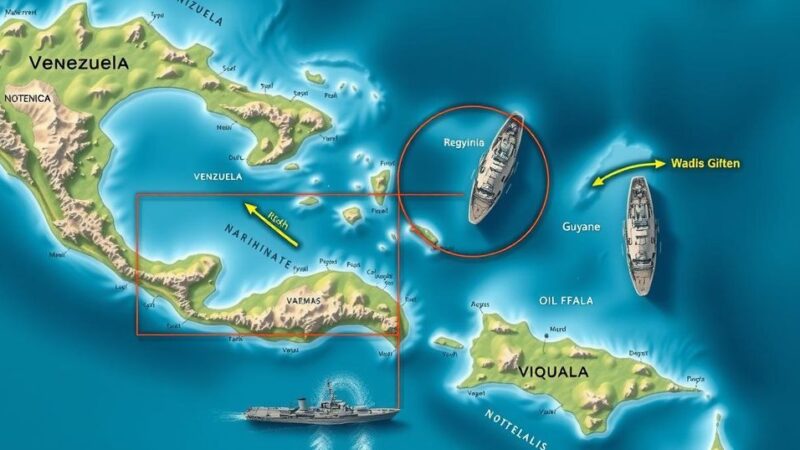As Cameroon prepares for elections, President Paul Biya is likely to run for an eighth term at age 91, making him Africa’s longest-serving leader. Concerns regarding his health and the effectiveness of his governance amid civil unrest and economic challenges persist. A fractured opposition and diminished coalition support complicate the political landscape, leaving few viable alternatives for the populace.
As Cameroon approaches its elections later this year, 91-year-old President Paul Biya is expected to seek an unprecedented eighth consecutive term. This would solidify his status as Africa’s longest-serving leader. Political commentator Dr. John Akpo asserted that the candidacy was certain, despite public concerns regarding Biya’s health. Elvis Ngolle Ngolle, a member of Biya’s party, indicated that preparations for the election were underway but deemed discussions of a successor as speculative.
Biya’s 42-year rule raises questions about his capability to effectively govern at age 91. If he were to be re-elected, he would reach 99 years by the next election cycle in 2032. Though some opposition parties have voiced indirect support for his candidacy, Akpo criticized their sincerity, suggesting they were created by Biya’s ruling party to dilute real opposition voices.
Paul Biya is recognized for developing a multi-party democracy in Cameroon, yet his leadership coincides with significant civil unrest due to a seven-year conflict led by Anglophone separatists in the country. Opposition politician Tamfu Richard observed that Biya’s age contributes to his inability to address these crises effectively, further exacerbating the nation’s hardships.
Opposition against Biya’s regime is met with suppression, as demonstrated by the jailing of peaceful protesters, including Maurice Kamto, a 2018 presidential candidate who faced unjust imprisonment after the election. Additionally, Biya’s ruling party relies on coalition partners such as the MDR and UPC, whose influence has diminished in recent elections. Despite their electoral decline, they play an essential role in supporting Biya’s administration.
During recent discussions, Catholic bishops in Buea commented on Cameroon’s political landscape, urging improvements in citizen welfare rather than directly calling for Biya’s resignation, despite backlash from the government. The bishops’ position reflects the church’s significant sway over the predominantly Catholic population, with potential to influence public sentiment against Biya’s administration.
Economically, Cameroon has faced challenges, including a decline in real GDP growth attributed to various domestic factors. Though some recovery signs emerged in early 2024, the poverty rate remains alarming, with nearly a quarter of the population living under the international poverty line, while corruption continues to permeate the political landscape.
Despite the pressing need for infrastructure development and economic diversification, strained political opposition offers no feasible alternative to Biya’s continued rule. Some citizens may desire stability over change, which inadvertently perpetuates Biya’s hold on power, as opposition members assert the necessity for change while failing to present viable solutions.
The article examines the political climate in Cameroon as President Paul Biya prepares to potentially extend his over four-decade-long presidency. Cameroon’s ongoing civil unrest, economic challenges, and concerns about Biya’s advanced age, alongside a fragmented opposition lacking a clear alternative to his rule, are highlighted. The political dynamics within ruling and opposition parties, alongside the influence of the Catholic Church, play significant roles in shaping the country’s future.
In summary, President Paul Biya’s expected candidacy for another term raises concerns about his ability to govern effectively at 91, especially amid notable civil unrest and economic difficulties. His longstanding presidency has resulted in a weakened opposition, dwindling electoral support for coalition partners, and allegations of corruption. Calls for change have emerged, yet with the current political landscape, the possibility of significant reform under another Biya term remains uncertain.
Original Source: www.dw.com






